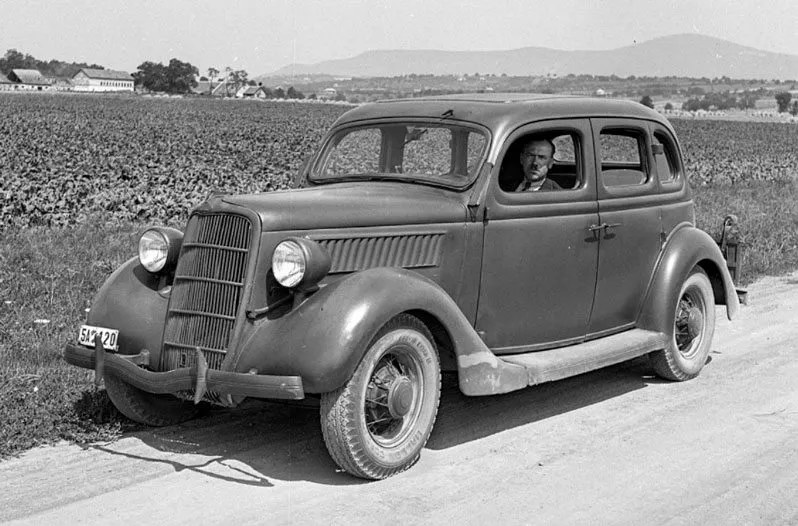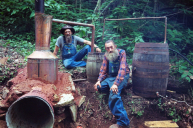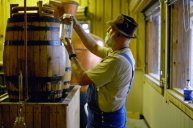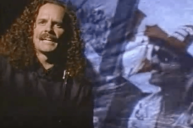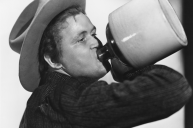NASCAR racing and the term stock car have deep roots in bootlegging, with backstories and characters that sound like something out of a less family-friendly Dukes of Hazzard episode.
Bootleggers made their own moonshine before prohibition to dodge taxes. The term moonshine comes from late-night brewing sessions held at well-concealed stills. That way, smoke from the still would be less visible from a distance.
Once alcohol became illegal from 1920-1933, that pre-existing business model served an obvious demand. Risks to moonshiners' freedom and safety heightened as laws changed, especially when product crossed county lines.
Each operation had drivers with souped-up cars that could maneuver lesser-traveled backroads and evade the police. Such cars had to look unsuspicious, so they hardly were bright orange with a Confederate battle emblem on the roof. Instead, they looked like the typical work vehicles of the time. Thus, they were described as stock cars.
Once Prohibition ended and whiskey drinkers were less dependent on bootleggers, there were special-built cars and skilled drivers scattered between Virginia and Georgia, left with an itch for speed they needed to scratch. Races happened during and after the days of illegal moonshine runs, but the growth of the sport suffered from a lack of race tracks and honest promoters.
Enter NASCAR co-founder and manager Bill France Sr., who helped organize the sport and establish rules and guaranteed purses at a Dec. 14, 1947 meeting at Daytona Beach, Fl.
Per legend, many of the drivers with past ties to bootlegging trusted France and their team with their secret. Among the known bootleggers involved in early NASCAR was one of its earliest superstars, Junior Johnson. "It gave me so much advantage over other people that had to train and learn how to drive," Johnson once said, according to NASCAR.com . "When I sat down in that seat the first race I ever ran, it was a backseat to what I'd already been through. I had did all them spinning deals sideways and stuff like that. It just made my job so much easier than anybody I had seen come along and go into it. Never, ever, did I see a guy who could take a car any deeper than I could and save it, as long as I raced."
